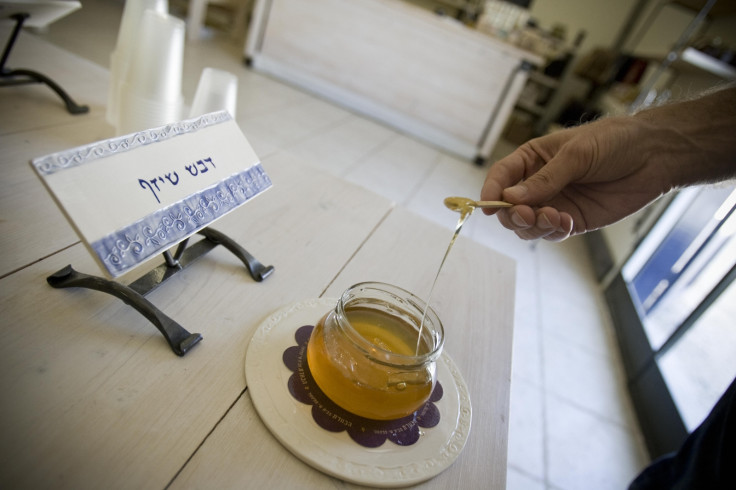What do Jews eat to celebrate Rosh Hashanah?
Celebration of the Jewish New Year take many forms – but food might just be the most important of the lot.
Sunset on Sunday (2 October) marks one of the holiest days of the Jewish year, Rosh Hashanah.
Literally translated Rosh Hashanah means "Head of the Year". It's the Jewish New Year and the first of the High Holy Days.
Millions of Jews will take part in the two-day celebration, which begins on the first day of the month of Tishrei.
During these special days, families will gather for meals to celebrate the time of rebirth and enjoy a feast of traditional sweet, salty and savoury foods. The foods all evoke blessings for the months ahead.
Before the meal, there will be a recitation of Hamotzi, the blessing over bread.
Apples and honey feature heavily in Rosh Hashanah meals, as they are said to ensure a sweet new year.
According to Jewish mythology, the apple represents the Shekhinah – the feminine aspect of God – and eating the combination is said to encourage Shekhinah to be kindly when judging.
Eating apples and honey began as a late medieval Ashkenazi tradition that is now universally accepted throughout Judaism.

Another food with a symbolic meaning is the head of a fish, referencing the prayer "let us be the head and not the tail". It is just another example of fresh produce that is often abundant on the holiday table.
Jews also enjoy round loaves of Challah bread, which are the most recognisable food during Rosh Hashanah. Challah is a type of braided egg bread, it is normally served on Shabbat, the Jewish day of rest, and is often shaped into spirals to represent continuity.

Pomegranates also play an important part during Rosh Hashanah as the many seeds symbolise fruitfulness.
Dates, black-eyed peas and spinach are also mentioned in the Talmud, a central text of Rabbinic Judaism.
Some Jews will also avoid eating nuts on the belief that the fact that the gematria – numerical value of the Hebrew letters – of "egoz" (meaning nut) is equivalent to that of "chet" (meaning sin).
© Copyright IBTimes 2025. All rights reserved.





















